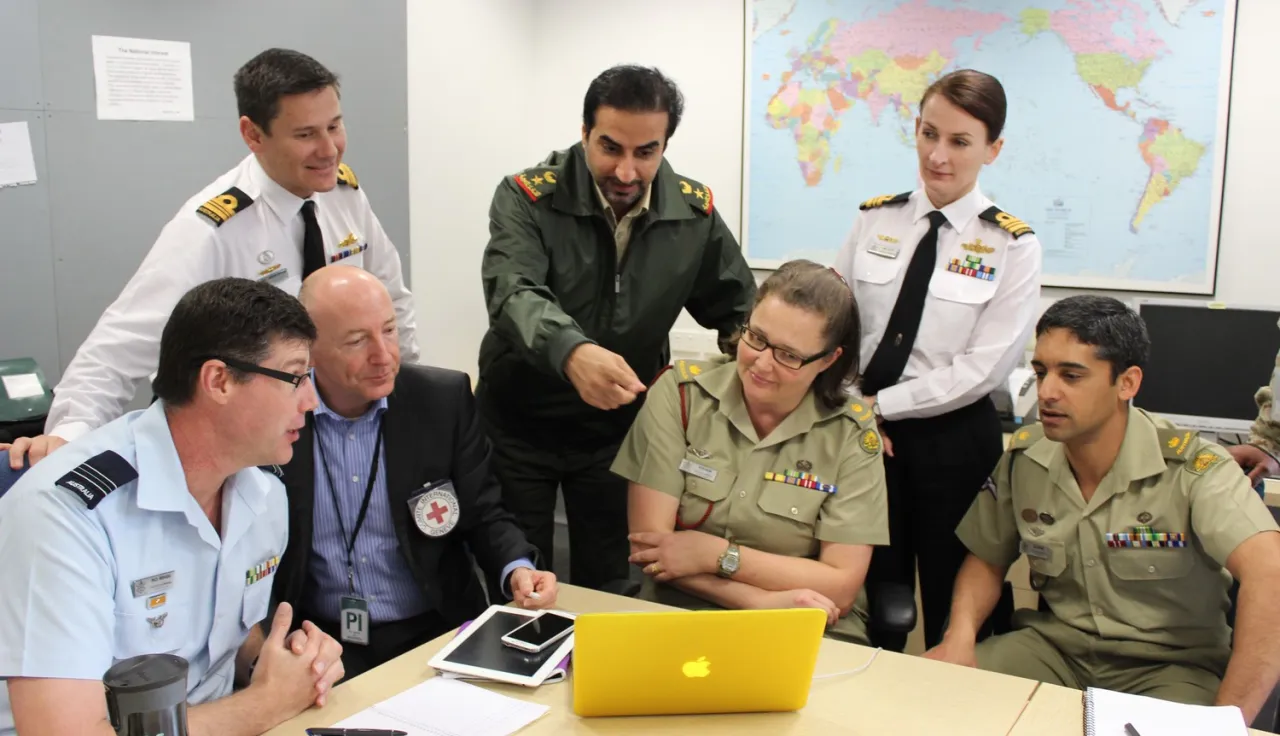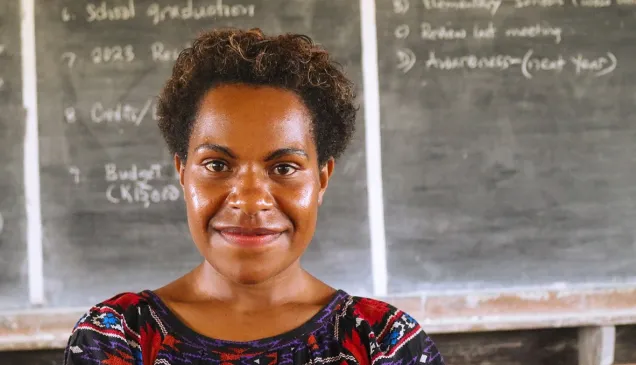Australia: Working with the military

One of the ICRC's main objectives is to have an operational dialogue with militaries around the world, including in Australia, to ensure that the armed forces know and apply International Humanitarian Law (IHL) in their operations and facilitate ICRC's humanitarian action for victims of conflict.
This work is primarily undertaken by our delegates to the armed forces, who assist in facilitating ICRC's humanitarian work by educating the military on our mandate, working methods and activities, as well as the applicable legal frameworks in any given context.
"Militaries such as the Australian Defence Force (ADF) need to have an understanding of the ICRC and our neutral, impartial humanitarian action, so it comes as no surprise when they do encounter the ICRC in operational areas," said Mr Kirby Abbott, ICRC's new delegate to the armed and security forces for the Asia Pacific region. "That's why we spend a fair bit of time involved with the planning and conduct of various military exercises. This also ensures that way we always have a general strategic level of ongoing dialogue to discuss emerging issues related to IHL."
Constant interaction
In situations of armed conflict, during the conduct of hostilities, the ICRC is in constant interaction with armed forces, both State and non-State. Most ICRC field personnel are engaged in dialogue with the military in some way, whether at checkpoints, in visits to detainees held under military control or when trying to find the whereabouts of missing people. However outside situations of war and violence, ICRC's armed and security forces delegates also work with militaries at defence colleges, educating soldiers, sailors and air force personnel on the roles and responsibilities of the ICRC.
In Australia, the ICRC participates in a range of military-run activities, ranging from desk exercises focused on conflict scenarios to field training which involves thousands of personnel and examines issues related to armed conflict, such as the detention of prisoners-of-war and civilian internees.
The exercises benefit both the ICRC and the military by allowing each party a chance to test their functions and roles in near-real life armed conflict scenarios.
"Exercising with the ADF also provides a wonderful opportunity for us to meet new commanders that may have come in during various posting cycles," said Mr Abbott. "And it allows us to meet some of the key military personnel that are involved with various aspects relating to the conduct of operations as well."
Conflict simulations
Col. Simon Johnstone, director of the Australian Command and Staff College, runs a yearly exercise called JEX which brings together military personal, government agencies and non-government organisations, including the ICRC, as part of conflict-related simulation.
"There are two key benefits of this exercise," said Col. Johnstone. "Firstly, it's about understanding how to build relationships with other organisations and people who don't wear the uniforms we wear. And secondly, it's about understanding the perspectives that different organisations have and respecting those perspectives. These types of exercises are critical. Any time you operate with an organisation that is different to your own, you bring a broader perspective to the planning effort."
Syndicate facilitator Lt Col. Benny Arfan, from the Indonesian Air Force, said the JEX exercise was a valuable opportunity for students at the college.
"For military personnel having ICRC and other agencies involved in this exercise opens our mind broadly about the fact that we are not the only actors in the field," said Lt Col. Arfan.
"We know there are other agencies involved in post conflict and armed conflict situations but we often don't understand their roles, abilities, and how can we collaborate with them. That's why we need participation from ICRC, the Department of Foreign Affairs and Trade, and other agencies to get different perspective than those of military personnel."
Ongoing dialogue
The dialogue and exercises that occur at these early stage meetings ensures ICRC's acceptance in the field and is critical in ensuring access to victims of armed conflict.
"Having the interaction at the tactical level is quite often the product and the result of previous engagements that occur at the operational and strategic levels," said Mr Abbott. "It shouldn't surprise anybody that the more both parties get to know and understand each other the easier the interactions during moments of crisis will be."
Lessons learnt from previous experiences are also an integral component for shaping future collaborations between the ICRC and the ADF.
"The ADF is operating at a very high level in terms of how they integrate IHL and the way they conduct their operations. As a consequence of that they understand the role of the ICRC and are able to facilitate our humanitarian assistance in the field," said Mr Abbott. "It's important that we continue a dialogue that capitalises on the lessons learnt and ensures that current levels of understanding and integration are maintained."



